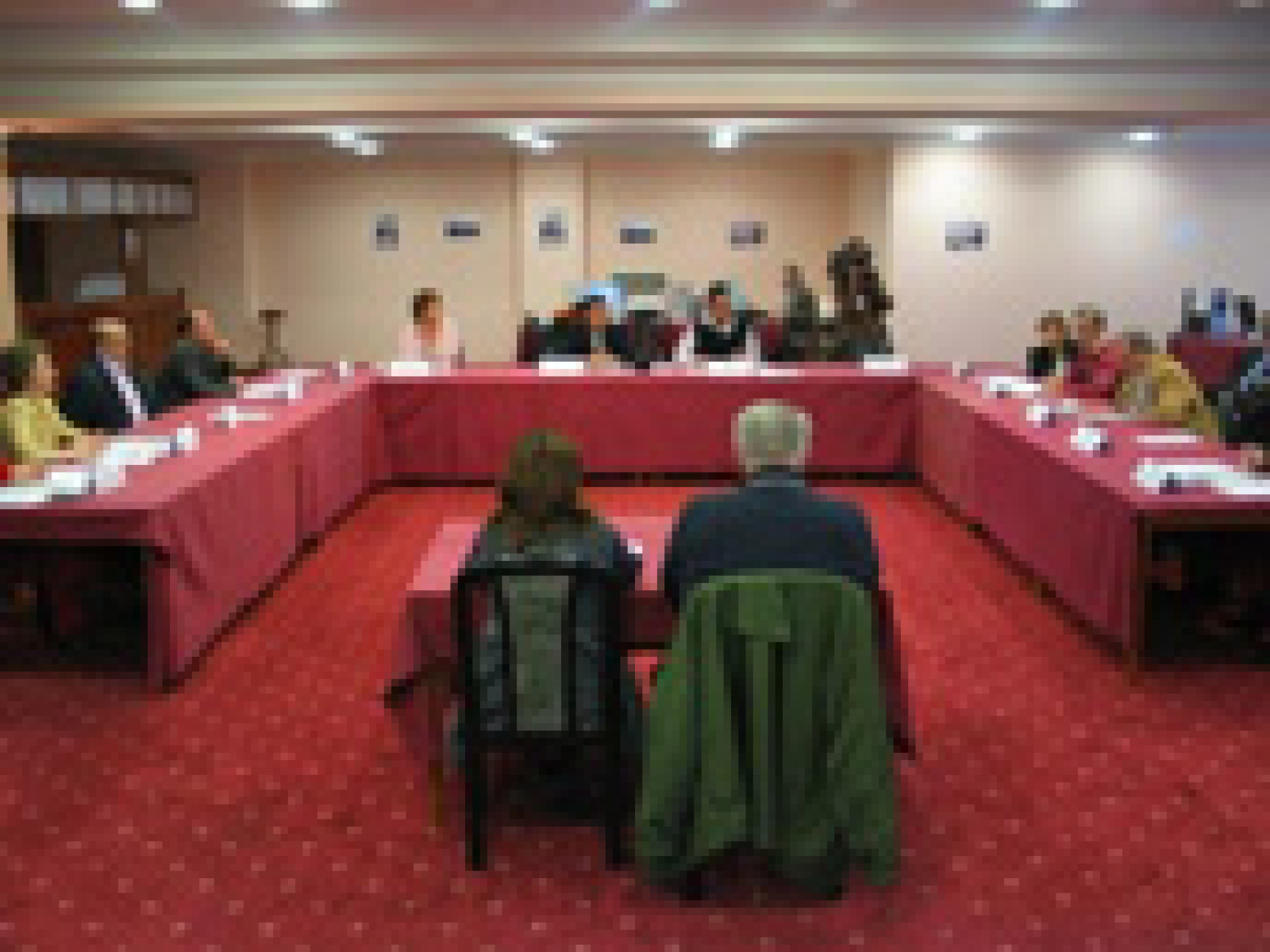
SHARE
Legislators and staff of the National Assembly of Macedonia focused on process rather than politics in a recent simulation exercise that demonstrated the use of public hearings to further the efficiency of committee work within their parliament.
The NDI-sponsored simulation was structured around environmental issues facing a young, transitional democracy similar to their own – the fictitious Republic of Verduria – to engage participants in a series of mock legislative, oversight and investigative committee hearings. Twenty-two MPs from eight political parties and 12 parliamentary committee clerks participated in the three-day “Environmental Challenge” simulation in early December near Macedonia’s Lake Ohrid. Participants were called on to cast away their party affiliations and positions, leave preconceived notions at the door and “enter Verduria with an open mind because the environmental state of the Republic of Verduria is in your hands!” Removed from the tense realities and controversial atmosphere in their Assembly, the parliamentarians and staff were able to discuss and exchange experiences across party lines. The simulation was held against the backdrop of growing political gridlock in Macedonia, including ongoing attempts to pass reform legislation to meet standards for accession to the European Union. “The simulation was useful because we had an opportunity to share views with MPs from different political parties and mix with them…swapping roles with those in power and the opposition,” said one participant who filled out an anonymous evaluation. “The simulation could encourage MPs and committee chairs to hold more public hearings – especially oversight and investigative hearings – as a way out from a lot of current challenges we are facing in Parliament.” To allow for free and unbiased discussion, organizers chose to focus on the environment, which is yet to gain in political importance in Macedonia. But the exercise also provided an introduction for the legislators to the realities of global climate change. Beyond their introduction to the procedural elements of effective public hearings, participants also engaged in a series of random tasks, including mock phone calls with constituents and media appearances with simulated television reporters. Since Macedonian political coverage typically focuses on a small bloc of legislators, the MPs in attendance were grateful to have the opportunity to hone their communication and media skills, in hopes of gaining wider media presence. According to one participant, “The whole simulation was realistic – laws, budgets, campaigns, organizations and transparent media interviews.” Three staff members from the U.S. Congress were on hand to evaluate the simulation, under the auspices of the House Democracy Assistance Commission (HDAC), as well as to provide insight on U.S. best practices in public hearings. “Having the U.S. congressional staffers share their experiences through NDI was very useful,” remarked one participant. The congressional staffers described the event as a “success, with the MPs and staff from Macedonia expressing enthusiasm and appearing to have benefited from the exercise. Pictured above: Witnesses testifying in front of the Committee during the Public Hearing Simulation
–
Published on Feb. 19, 2008


